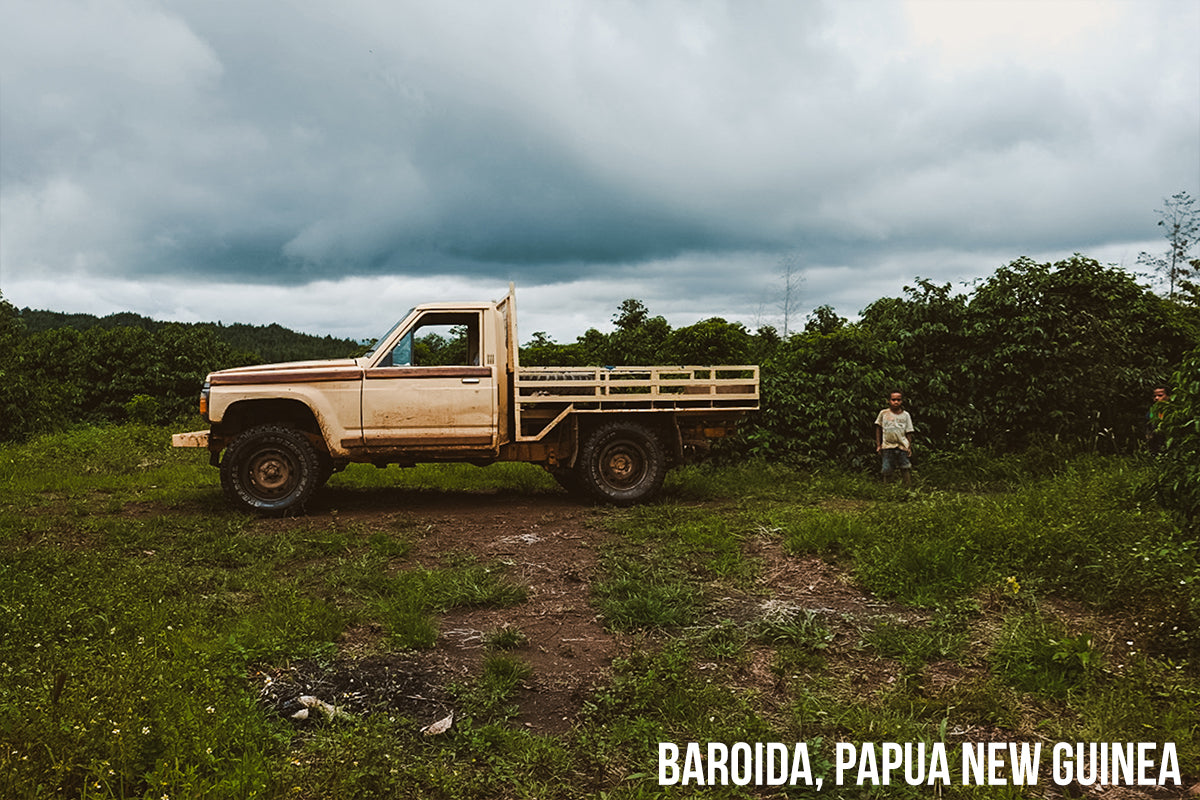
Dan Streetman, our green coffee buyer, believes in developing relationships with our producers. He makes a point to visit them as often as possible. This is a story of a morning in Peru; spent with Sergio Palermo, who provides our latest single origin selection in cafes: Los Alisos.
-
It’s 7:30 am, and I’m sitting on the front porch of Sergio Palermo, a coffee producer who lives outside the small town of Chirinos, Peru. We’d agreed to meet for breakfast and while his wife Blanquita prepares coffee and food for us, we’re chatting to pass the time. My mind is racing to keep up with Sergio’s rapid Spanish, his slang and his unfamiliar accent. Luckily, the morning chill is cutting the sluggishness of my travel-weary brain, especially since we’re still patiently waiting for the coffee.


I’m struck by the casualness and familiarity of the conversation, this is only the third time I’ve met Sergio, and he is quickly skipping from subject to subject regaling us with the various things that have transpired over the past year. The weather, a visit from his niece who lives in Boston, how he has been rehabbing from a torn meniscus, not shying away from our questions. Eventually the coffee comes, and it’s easier to keep up.
As the conversation continues I’m starting to get a strong sense of who Sergio is, just from his pace of conversation and tone of voice you can pick up that he is charismatic and energetic. From the way others in the community discuss him, you know he is a leader, respected not only for his work ethic, but also his technical prowess. In a longer conversation you see a man of experience, pragmatism and charm. Matter of factly he discloses that he and Blanquita bought their farm because the area they were from was running out of ground water, and the economic opportunities were drying up, then quickly cracks a joke. He’s incredibly talkative, a simple question leads to multiple tangents and the conversation barely breaks for us to eat breakfast, before I know it the morning is quickly passing us by.

After the meal, we walk out to the field to see the trees, and talk more directly about Sergio’s coffee. We pick some coffee cherries as we admire the stunning view and pepper him with questions about coffee production in the area. He replies with ease, his biggest concern: “When will the sun come out?” so his coffee can dry. Sergio explains the parts of the process he can control. They’re just doing the job the correct way. “No problem.” Picking with care, de-pulping, washing are all straight forward, but the one thing he can’t control, the weather, is his biggest challenge. Especially here at the top of this plateau (nearly 1900 meters above sea level) the intermittent rain and damp fog caused by the persistent cool nights at this elevation give him lots of grief when it comes to drying the coffee. After he explains that he employs neighbors and family members to help with the harvesting, Sergio takes us to visit his wet-mill and secadora (dryer).

After a brief review of his depulping, fermentation and washing process, we go to the secadora to turn the coffee. The secadora is essentially a small barn with a corrugated translucent plastic roof to let the sun in and increase the temperature. Almost like a greenhouse, the building is at least 5 degrees warmer than outside even this early in the morning. Here we go deeper into the challenges of drying, Sergio shows us how he doesn’t have enough space even though he has expanded the number of raised beds by adding new racks that help capture some of the vertical space. Sergio’s plan is to put in a cement floor, so that area too can be utilized for drying, along with the benefit of it holding in some of the heat. The floor will have to wait for the time being, as he’s still finishing expanding the patio in the house.

After the tour of the farm operations, we head back to the house to sit on the porch. A representative from the Co-op arrives, signifying that our time is drawing to a close. As the Co-op administrator sits down, I realize we’re not in a hurry. I sit back to relax and take in the ensuing conversation, Sergio pops up, regresses into a side room, and comes out bearing a box of novelty shot glasses. He hands me one, insists that I take it as a memento of my visit and shortly after returns with an oversized bottle of Johnny Walker. He insists that we have a dram and consecrate our time together, as we wistfully discuss what will come over the next year until my next visit.






































